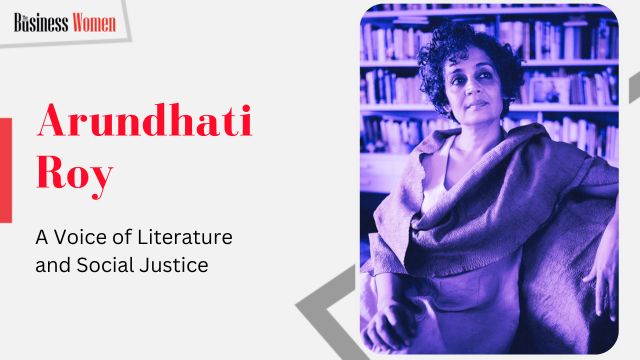Arundhati Roy, born on November 24, 1961, in Shillong, India, embodies a unique fusion of literary brilliance and social activism, resonating deeply with readers and activists alike. Widely acclaimed for her literary prowess and unyielding dedication to social equity and human rights, Roy soared to international prominence with her debut novel, “The God of Small Things,” which clinched the prestigious Booker Prize in 1997. Beyond her literary achievements, she stands as a beacon of conscience in contemporary literature, tirelessly advocating for global causes.
Early Influences and Academic Journey
Raised in a household steeped in principles of social justice and education, Arundhati Roy’s upbringing was rich and diverse. Her father, Rajib Roy, worked as a tea planter, while her mother, Mary Roy, was a staunch advocate for women’s rights and an educator. Roy pursued her education in architecture at the Delhi School of Architecture and the National Institute of Design in Ahmedabad. Her background in design and architecture endowed her with a discerning eye for detail and aesthetics, traits that permeate her later literary works.
“The God of Small Things”: A Landmark Debut
Published in 1997, “The God of Small Things” marks Arundhati Roy’s debut novel, a poignant exploration of familial bonds, love, caste disparities, and the volatile societal and political landscape of Kerala, India. Drawing partly from her own experiences, Roy weaves a mesmerising narrative around twin siblings, Estha and Rahel. The novel captivated audiences worldwide with its lyrical prose, richly drawn characters, and immersive storytelling, earning Roy the distinction of becoming the first Indian woman to win the Man Booker Prize.
Activism at the Intersection of Literature
Arundhati Roy seamlessly merges her literary acclaim with a resolute commitment to addressing pressing social and political issues. Fearless and unwavering, she emerges as a fierce advocate for justice, human rights, and environmental sustainability. Her notable endeavours include:
- Challenging Globalisation: Roy critiques the detrimental impacts of globalisation, shedding light on issues such as economic disparity and ecological degradation.
- Anti-War Advocacy: A vocal opponent of the Iraq War, Roy vehemently condemns U.S. foreign policies, advocating tirelessly for peace and justice.
- Kashmir Advocacy: Roy fervently champions the cause of Kashmiris, amplifying their struggle for self-determination and human rights on the global stage.
- Environmental Advocacy: Roy consistently raises awareness about environmental crises, including deforestation, climate change, and the exploitation of natural resources by corporations.
- Social Justice: Through her writings and speeches, Roy confronts issues of caste discrimination, poverty, and inequality in India, addressing critical societal challenges head-on.
Awards and Accolades
Arundhati Roy’s contributions have garnered widespread recognition, including the Sydney Peace Prize in 2004 and the Norman Mailer Prize for Distinguished Writing in 2011. Her works, translated into numerous languages, cement her status as a global literary luminary.
In Conclusion
Arundhati Roy’s life and work embody the transformative potential of literature as a catalyst for societal change. Her seminal debut novel and unwavering activism underscore the profound impact of literature as a tool for amplifying the voices of the marginalised and driving social transformation. Roy’s legacy serves as a testament to the enduring power of storytelling in shaping a more just and equitable world.








